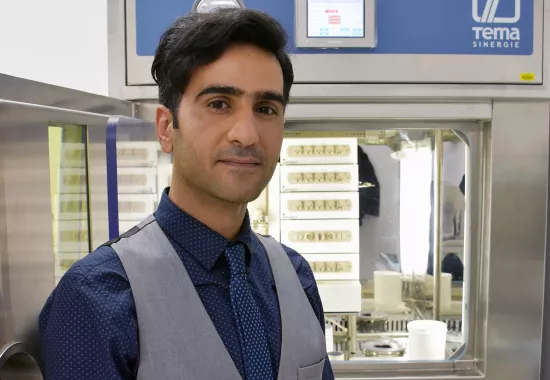Congratulations to Kolling cancer researcher and Sydney Vital fellow Dr Yaser Hadi Gholami on being awarded the prestigious 2020 Physics Grand Challenges grant.
The Grand Challenges project was initiated by the University of Sydney’s School of Physics to drive new discoveries and breakthroughs that will transform the world.
$250,000 will be directed to Dr Gholami’s innovative research which aims to significantly improve diagnostic techniques for cancer.
Dr Gholami is thrilled to have received the large, competitive grant.
“This has been my dream since I started studying physics. I strongly believe this will be the first step towards establishing the field of quantum medicine in the diagnosis of cancer,” he said.
“Our project will involve fundamental work which I believe will support generations to come in the diagnosis and treatment of a range of cancers.”
Clinicians currently use MRI or PET scans to detect cancer, but the imaging devices can only detect the cancer at a certain size. There are also some limits with existing blood, urine and tissue testing.
“Our approach will mean that we can detect cancer at a very early stage, and in many cases, before the cancer has had the chance to spread to other parts of the body. This will be a real game changer.
“Our technique will be able to detect malignant cells with quantum specificity, meaning that we can detect even a very small number of cancer cells in a liquid biopsy or nano-scale metastases in a solid biopsy sample.
“Importantly, this will be a large-scale, collaborative project bringing doctors and physicists together to solve one of the community’s biggest health challenges.
“My multidisciplinary physics team, including medical, nuclear, particle and quantum physicists from the University of Sydney will be working with the nuclear medicine team at Royal North Shore Hospital, including Professor Dale Bailey, and researchers Prof Alexander Engel and Prof Mark Molloy.
“We also anticipate international collaboration with colleagues at the Harvard Medical School to help translate our research into practical application.”
